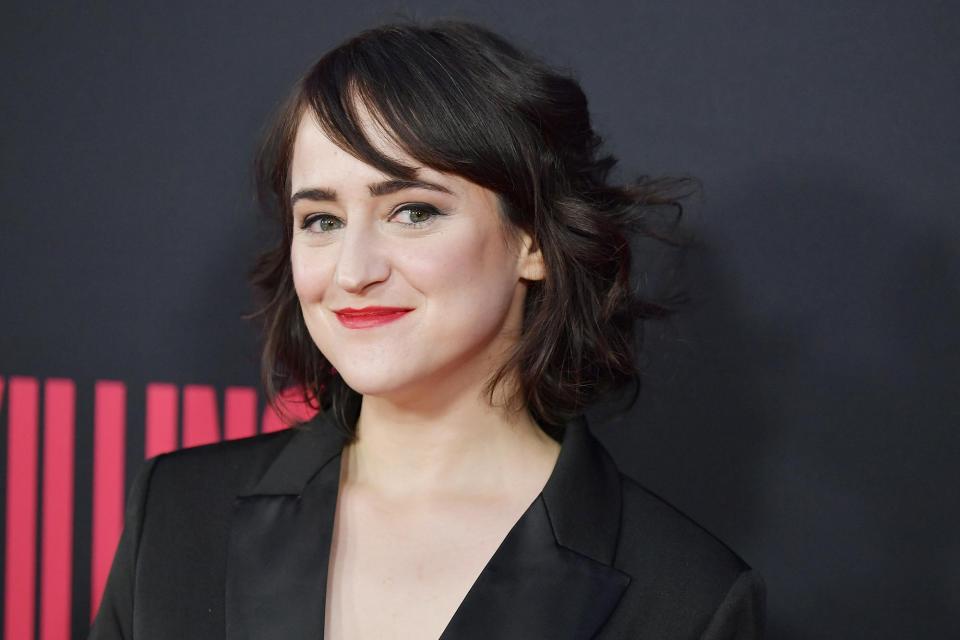Mara Wilson calls out 'terrifying' treatment of Britney Spears in essay on child stardom
- Oops!Something went wrong.Please try again later.
- Oops!Something went wrong.Please try again later.
"The way people talked about Britney Spears was terrifying to me then, and it still is now," writes Mara Wilson in an op-ed titled "The Lies Hollywood Tells About Little Girls" in The New York Times.
The actress, who rose to fame as a preteen in movies such as Mrs. Doubtfire and Matilda, opened up in an essay about the pitfalls and dangers of child stardom and the general treatment of young female stars by the media and Hollywood. Wilson begins her piece by describing an interview she did on her 13th birthday back in July 2000, during which she made the mistake of believing she could open up to a reporter about being tired and a little sad to be working on her birthday, only to be painted as a spoiled brat and problematic child star in the subsequent story. She notes that the story embraced what she now refers to as "The Narrative" — "the idea that anyone who grew up in the public eye will meet some tragic end."

Amy Sussman/Getty Images
In the wake of the New York Times Presents documentary on Britney Spears and her abhorrent treatment by the media and public, Wilson goes on to draw parallels between her own experiences and that of the pop star. "Her story is a striking example of a phenomenon I've witnessed for years: Our culture builds these girls up just to destroy them," she writes. "Fortunately people are becoming aware of what we did to Ms. Spears and starting to apologize to her. But we're still living with the scars."
Wilson writes that many moments in Spears' life were familiar to her, from having dolls made of them, to close friends and boyfriends sharing their secrets, to grown men commenting on their bodies. "But my life was easier not only because I was never tabloid-level famous, but because unlike Ms. Spears, I always had my family's support," she writes. "I knew that I had money put away for me, and it was mine. If I needed to escape the public eye, I vanished — safe at home or school."
"The reality was she was a new mother dealing with major life changes," Wilson notes of Spears' heavily publicized breakdown around 2007. "People need space, time and care to deal with those things. She had none of that."
Elsewhere in the piece, Wilson describes the over-sexualization of these young female stars and how, if they leaned in and embraced their sexuality as a rite of passage, they were labelled a "Bad Girl." She says that much care went into her image at the time to try and prevent that from happening. "I never appeared in anything more revealing than a knee-length sundress," she says. "This was all intentional: My parents thought I would be safer that way." Unfortunately, this didn't deter the media. "People had been asking me, 'Do you have a boyfriend?' in interviews since I was 6," writes Wilson. "Reporters asked me who I thought the sexiest actor was and about Hugh Grant's arrest for soliciting a prostitute. It was cute when 10-year-olds sent me letters saying they were in love with me. It was not when 50-year-old men did. Before I even turned 12, there were images of me on foot fetish websites and photoshopped into child pornography. Every time, I felt ashamed."
While Wilson's glad to see that "Hollywood has resolved to tackle harassment in the industry," she adds that she was never sexually harassed on a film set. "My sexual harassment always came at the hands of the media and the public," says the actress. "A big part of The Narrative is the assumption that famous kids deserve it. They asked for this by becoming famous and entitled, so it's fine to attack them."
Read Wilson's full essay at The New York Times.
Related content:

